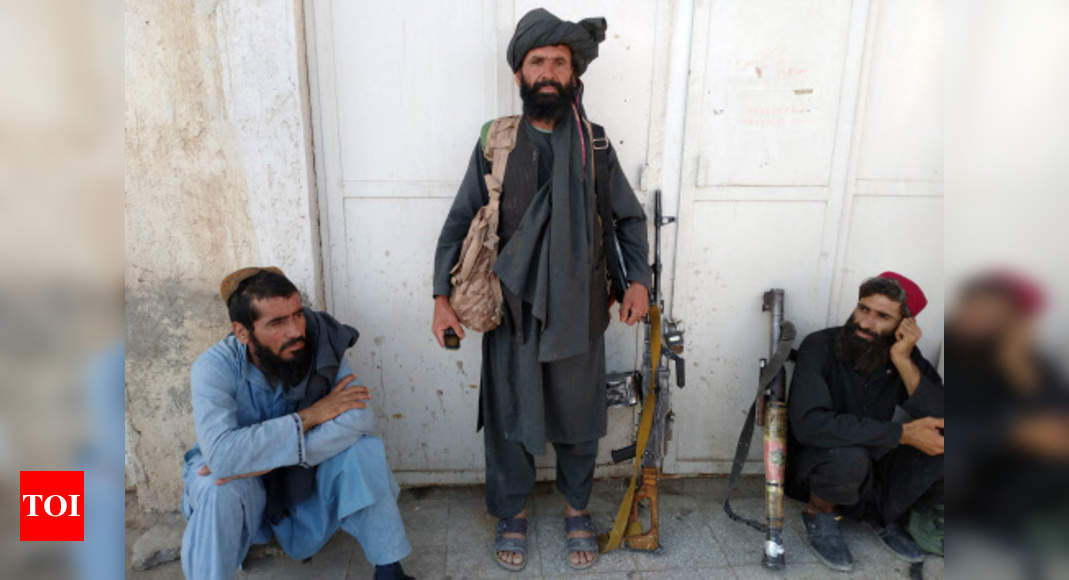What next for Afghanistan as Taliban rise again? – Times of India
[ad_1]
To add to its woes, Washington has announced plans to evacuate its nationals in Kabul, a symbolic and shambolic end of the US presence after nearly two decades of conflict.
With the Taliban controlling the vast majority of the country’s cities and rural areas, and Afghan security forces largely defeated, here follows some questions and answers that may help explain the current situation:
The Taliban have never shied away from saying what they want — the complete resurrection of their Islamic emirate that ruled from 1996 – 2001.
A lot of analysis and head scratching was devoted to how exactly they would achieve their goal — through talks, brute force, or a mixture of both.
In the end, their military strategy proved sufficient: overwhelm government forces with multi-pronged attacks on targets throughout the country.
To do that they first had to get American boots off the ground — which they did by securing a deal with war-weary Washington and pledging not to hit US targets in exchange for their withdrawal.
Part of the deal also meant Washington pressuring the Afghan government into releasing thousands of Taliban prisoners — most of whom immediately rejoined the fray.
With such breathtaking successes in the last eight days the Taliban may now have the confidence to offer the government the chance of unconditional surrender.
If Kabul baulks, expect the Taliban to push for the capital with force.
No doubt books will be published and lectures given for years, if not decades, on this subject — what exactly went wrong with the Afghan security forces?
Corruption, the lack of a will to fight, and the vacuum created by the US exit likely all played a part in the Afghan military’s ultimate demise.
For years, the US government issued reports detailing the vast amounts of corruption within the Afghan security forces.
Commanders routinely pocketed money meant for their troops, sold weapons on the black market, and lied about the number of soldiers in their ranks.
The Afghan forces were also entirely dependent on US air power — from logistics to strikes, along with maintenance.
And to make matters all the worse, the security forces never had much in the way of effective leadership.
They were micromanaged by civilians in the presidential palace with little military experience, or ignored by ageing generals who appeared more involved in petty political fights than the larger war at hand.
The US-trained commando units were the hope, but in the end they were not enough to shoulder the entire fight.
The Taliban have the upper hand across the board.
The government now controls just three major cities, and is unlikely to have the logistical manpower left to marshal a successful defence of the capital.
The Taliban are moving rapidly towards Kabul with reports suggesting their fighters are making progress on the northern and southern flanks of the capital.
The US and international community are most likely piling pressure on the Taliban and Afghan government to reach some kind of deal.
But the Taliban ultimately hold all the cards.
[ad_2]
Source link


Comments are closed.